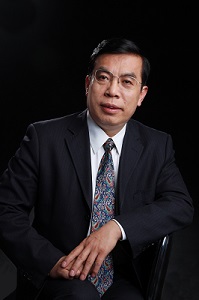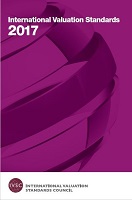 As China continues to grow rapidly and become more international, the importance of valuation professionalism and consistency moves further up the agenda. We spoke to the leader of a major valuation professional organisation in China, the China Appraisal Society (CAS), to find out more about the growth of the appraisal profession and the importance of IVS to the marketplace.
As China continues to grow rapidly and become more international, the importance of valuation professionalism and consistency moves further up the agenda. We spoke to the leader of a major valuation professional organisation in China, the China Appraisal Society (CAS), to find out more about the growth of the appraisal profession and the importance of IVS to the marketplace.
A representative of the Chinese Ministry of Finance and former Fiscal Counselor to the Chinese Embassy in the United States, Dr Zhang Guochun is the Secretary General of the China Appraisal Society.
Qu: Please tell us a bit about yourself and your role with CAS?
ZG: I’m the Vice President and Secretary-General of China Appraisal Society. I’m also a Trustee of the International Valuation Standards Council and Vice President of World Association of Valuation Organisations.
I started my work in the Ministry of Finance (MOF) of People’s Republic of China in 1996 as a staff member in Infrastructure Construction Department. Through to 2000, I served as associate counsellor, responsible for funds and financial management of large-scale national capital construction projects.
From 2000 – 2006 I served as Director and then Director General of the Ministry of Finance State Equity and Corporate Finance Department, during which time I oversaw research and policy for China’s industrial economy.
After that, I acted as Financial and Fiscal Counselor of the Chinese Embassy in the US for three years from 2007 to 2009, contributing to the bilateral communication and mutual cooperation between Ministry, US Treasury Department, and financial institutions from both countries.
Prior to joining CAS, I was the Deputy Director of the External Economic Cooperation Department of the Ministry of Finance, taking charge of the organisation and coordination of China-US Strategic and Economic Dialogues, and high-level bilateral financial and economic dialogues with the UK, France and Germany.
 Qu: What is the mission of the China Appraisal Society and how many professionals does it accredit today?
Qu: What is the mission of the China Appraisal Society and how many professionals does it accredit today?
ZG: CAS is the national, non-profit organisation which is formed from valuation firms and qualified valuation professionals in China. It is overseen by the Ministry of Civil Affairs and Ministry of Finance of the People’s Republic of China.
Over the last thirty years, China’s valuation industry has been working to build a profession that supports our market economy. Today, there is a well-established body of knowledge and a set of practical valuation standards which support business and empower future generations of professionals.
Our organisation has an institutional membership of 3,000 firms, a practicing appraiser membership of 34,698 and a non-practicing appraiser membership of 3,864, making it the largest valuation professional organization in the country.
Qu: How is CAS involved with the IVSC and the International Valuation Standards?
ZG: CAS joined IVSC as a member back in 1995, and I personally became a member of the IVSC Board of Trustees and Membership Committee in 2014.
Since we joined, CAS has actively participated in the process of formulating and revising the IVS and has recommended leading valuation experts from China to join the standards boards. We also regularly seek the views and opinions of our professionals to ensure their insight helps inform the IVS through the various consultations.
To my mind, the IVSC attaches great importance to the experience and insights of China’s valuation industry, as it does with all countries around the world. The boards take time to consider the views expressed by the representative from China. Most recently, CAS participated in discussions and put forward suggestions on the structural system of IVS 2017.
Qu: Why are international valuation standards important for China?
ZG: In responding to the specific needs of the Chinese valuation industry, CAS helped establish national valuation standards, through which it incorporates and promotes IVS. It took some time but, after many years of refinement, China Valuation Standards (CVS) have achieved convergence with IVS in terms of basic professional concepts, major technical methods and important technical terms. It means that valuation work carried out in line with the China National Standards also complies with the international benchmark, IVS.
IVS has been developed to reflect the requirements of both the marketplace and the professionals carrying out valuation work. In turn, this has played a major role in the internationalisation and standardisation of the Chinese valuation industry. IVS has helped enormously to promote the Chinese marketplace and the Chinese valuation profession to the rest of the world.
Qu: How do CAS members benefit through your work with the IVSC?
ZG: First of all, by cooperating with IVSC, CAS is better able to inform members of the evolving trends and best practice in global valuation. Our members have gained considerable insight into valuation theory, emerging technology and international experience which undoubtedly helps them to conduct business overseas and with overseas clients in China.
Secondly, CAS publishes the details of IVSC’s meeting and events and encourages our members to positively participate, giving them the opportunity to proactively shape the evolution of IVS.
Thirdly, it is important to note that having cooperation with IVSC effectively expands the communication channel between domestic valuation professionals and foreign professionals, and builds platforms for them to develop international business cooperation. Our members, and professionals around the world are able to learn a great deal from one another.
Qu: What opportunities do you think the valuation profession has over the next few years?
ZG: First, along with the rapid acceleration in technology and business model innovation, there are new service scopes and demands, such as e-commerce, big data etc. These new products and technologies all requires value management services to provide the corresponding value.
The Chinese government is currently pushing comprehensive reforms and streamlining its administration in order to delegate powers. The market will increasingly play a decisive role in the allocation of resources and new valuation businesses focused on areas like fiscal performance valuation, government assets valuation, PPP project valuation, cultural enterprise valuation, intellectual property valuation and ecological environment valuation will create new markets and business opportunities for the Chinese valuation industry.
Additionally, the ‘One Belt and One Road’ initiative has brought new development opportunities to the valuation industry. Valuation has the function of value discovery, value management, and value guidance, all of which plays an indispensable role in the allocation of resources and the maintenance of economic order. With the further promotion of One Belt and One Road, China’s foreign investment will surely continue to grow. The valuation industry will play an essential role in overseas mergers and acquisitions and will guide the rational allocation of resources on a global scale in the public interest.
Qu: How would you like to see the valuation profession evolve over the next few years?
 ZG: I would like to see the valuation profession evolve in five areas:
ZG: I would like to see the valuation profession evolve in five areas:
- Legalise the governance of valuation industry: Legal governance is critical to the existence and development of the valuation profession. It underpins quality and offers a basic guarantee and effective management of the profession. Many countries and regions throughout the world have set relevant laws and regulations to guide, restrain and promote the development of the profession. This should happen across all jurisdictions to ensure valuation practice is enshrined in law. In China, laws on asset appraisal came into effect on December 1st, 2016. By standardising professional activities through law, the profession has rules to follow. National interest, public interest, and legal rights of valuation firms and valuers have been safeguarded as a result. This in turn promotes the healthy development of the valuation profession, the economy and society.
- Broaden the focus of valuation business: The valuation industry in many countries originated from the demands of real estate valuation. In tandem with economic globalisation, the business scope of valuation is continuously expanding and categories of assets are becoming ever more diversified. The valuation industry and profession should focus on broadening its area of focus so that it is define more coherently as a diverse and evolving field of practice.
-
Diversify the valuation market: Globalisation has brought with it challenges around resources and environment, complex financial products, business model innovation etc. Valuation plays an increasingly significant role in the service of global economic and social development. Now the range of valuation service has shifted from general assets to the new resource assets; from domestic assets to foreign assets. The types of assets being valued will be diversified and internationalised, and cross-border business will gradually become the regular business of the valuation industry.
- Convergence of valuation standards: Convergence of valuation standards is important as economic globalisation drives the need for alignment in our systems and approach. IVS has become the most influential professional valuation standard worldwide and countries should actively seek convergence, either directly or through existing standards, so that it becomes the benchmark for valuation practice worldwide.
- Embrace new tools to support valuation: New technologies and applications using the internet, big data and artificial intelligence will have a far-reaching impact on valuation technology, method, business model and so on. The valuation profession needs to embrace these new opportunities whilst carefully managing new risks.
Qu: What are your interests outside valuation?
ZG: My research interests lies in philosophy. Before I started my career in Ministry of Finance, I was the university lecturer in philosophy. I have long engaged in research of Tao Te Ching, which is written by an ancient Chinese philosopher, Laozi.
Besides this, because I participated in and witnessed the development of China-US, China-UK, and China-EU economic relations, I also have strong interest in studying economics, international finance and corporate finance.